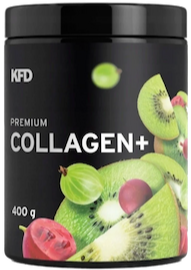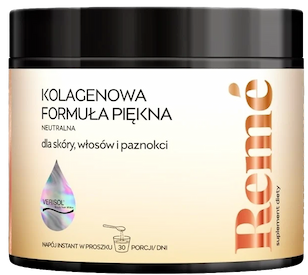Taking collagen in your 40s (Best collagen supplements for women and men over 40)
Collagen after 40 is the way to maintain firm skin, strong nails and shiny hair.


Learn more about our editorial process
.

Learn more about our editorial process
.

Learn more about our editorial process
.

Learn more about our editorial process
.
Why you can trust us
Articles on Natu.Care are written based on scientific research, data from government websites and other reliable sources. The texts are written in cooperation with doctors, nutritionists and other health and beauty experts. Articles are reviewed before publication and during significant updates.
.Learn more about our editorial process
.Information about advertisements
Content on Natu.Care may contain links to products from the sale of which we may receive a commission. When creating content, we adhere to high editorial standards and take care to be objective about the products discussed. The presence of affiliate links is not dictated by our partners, and we select the products we review ourselves completely independently.
.Learn more about our terms and Conditions
.Life begins in your 40s and that's cool. But it would be nicer to go through that life without wrinkles, aching joints and broken fingernails.
Collagen can be an effective aid. That's why, together with clinical nutritionist Julia Skrajda, we present the most important information about it.
Collagen is a great way to help you.
From this article you will learn:
- How collagen helps you stay healthy. .
- Which collagen supplement is best. .
- Why fish collagen and hydrolysed collagen are the best combination. .
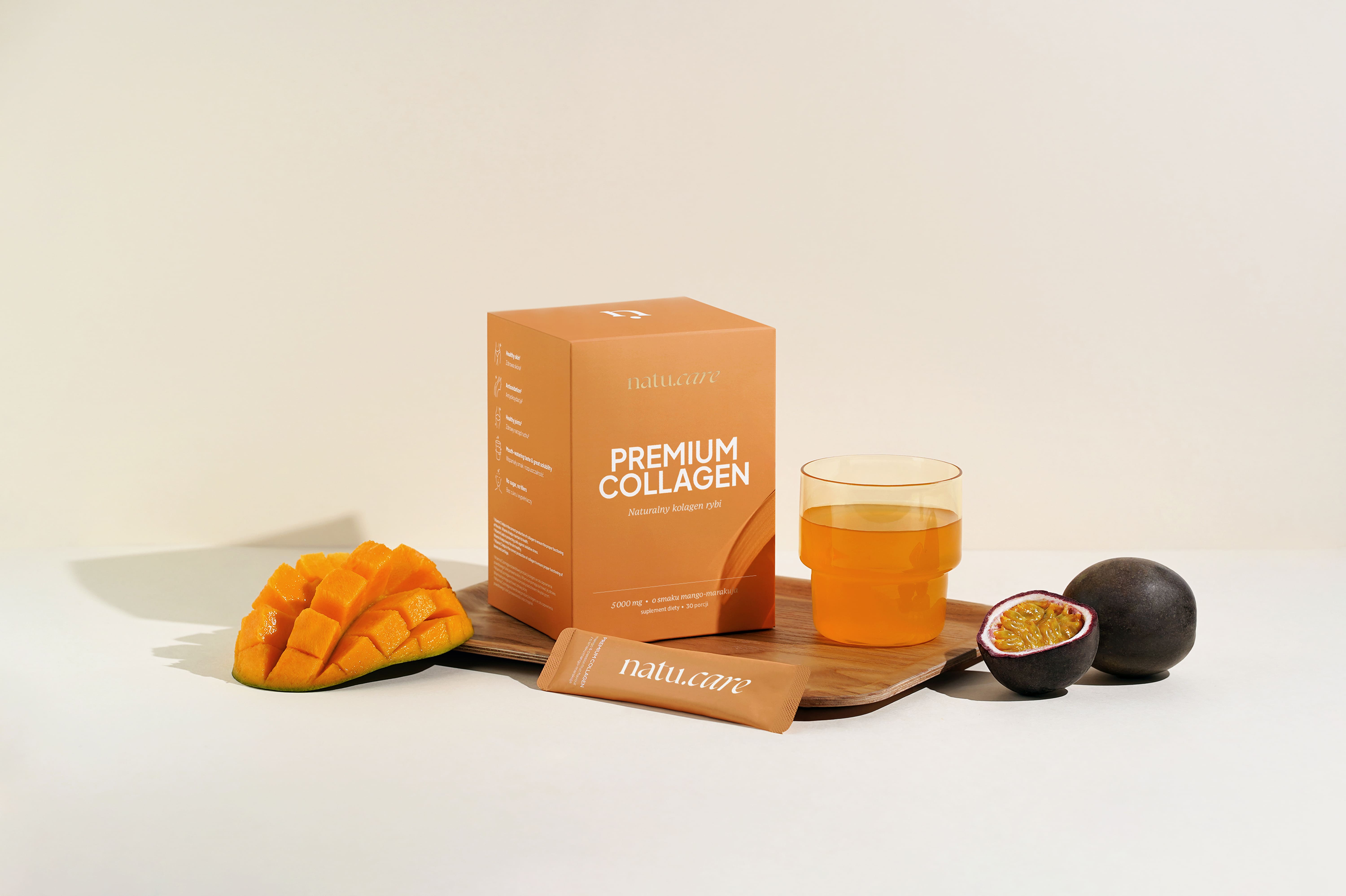
Sprawdź, za co pokochały go tysiące klientek Kolagen Premium 5000 mg, mango-marakuja
Natu.Care Kolagen Premium 5000 mg, mango-marakuja
Natu.Care Kolagen Premium dla zdrowia stawów, skóry, paznokci i włosów. Najlepsza przyswajalność. Optymalna dawka 5 000 lub 10 000 mg. Przebadany przez niezależne laboratorium.
Zobacz więcej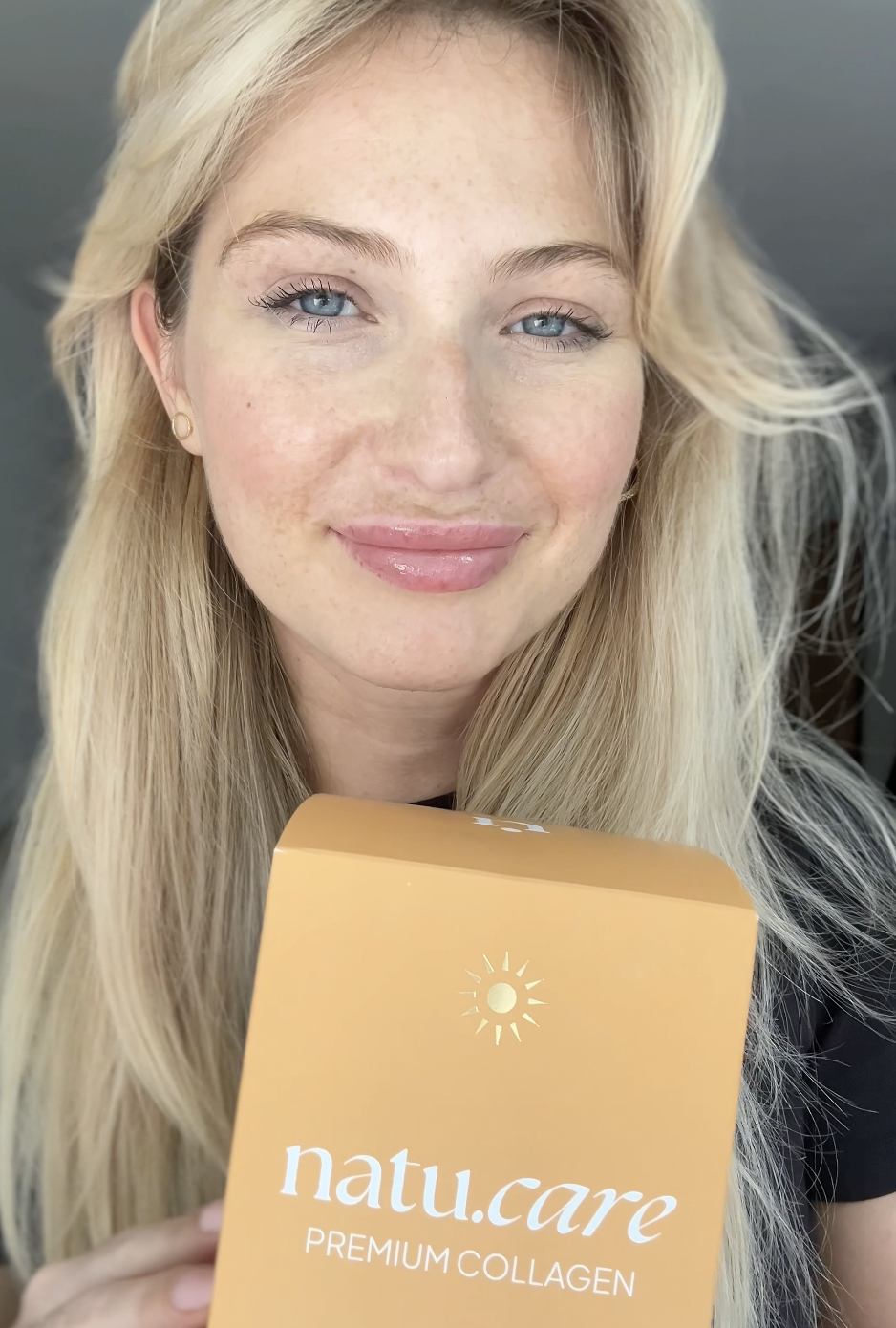
Wybrałam kolagen Natu.Care, ponieważ miał super opinie – a to było dla mnie bardzo ważne! Odkąd go stosuję, moja skóra znacznie się poprawiła i jest nawilżona, a na głowie pojawiły się nowe "baby hair".@Kasia S.
See also:
.
- The best collagen on the market .
- Best facial collagen
- Best collagen for the skin
- Best collagen for joints
- Best collagen for hair
- Best collagen for wrinkles
- Best collagen for cellulite
- Best collagen for acne
- Best collagen for stretch marks
- Best collagen for athletes
- Best collagen for drinking and collagen for drinking (effects)
What properties does collagen have?
.
Collagen is a key protein in the human body. It is responsible for the structure of the skin, nails, hair, joints and connective tissue. Supplementation with collagen can affect various elements of the body.
- .
- skin health. Collagen plays a key role in skin elasticity, firmness and regeneration. Supplementation can reduce wrinkles and improve the appearance of the skin, reducing drynessand.
- Joint support. Collagen is an important component of cartilage, so it can help maintain healthy joints and reduce joint pain .
- Bone strengthening. As an essential element of bone, collagen can prevent bone loss and reduce the risk of osteoporosis .
- Hair and nail health. Collagen may affect the growth and strength of hair and nails, making them less brittleand. .
- Muscle condition. Collagen can help to increase muscle mass, especially when combined with strength training. It also helps to maintain proper muscle structureand. .
- Heart health. Collagen helps maintain the health of blood vessels and the structure of arteries, which can ensure better blood circulationand. .
- Improving tendon and ligament elasticity. Collagen is an important component of ligaments and tendons, so supplementation may be beneficial in their regeneration and elasticityand. .
- Gut health. Collagen contains amino acids that may support gut and intestinal barrier healthand. .
Best collagen after 40 - ranking
.
Natu.Care Collagen Premium 5000 mg, mango-maracuja

- Collagen content: 5000 mg marine collagen hydrolysate
- .
- Additional active ingredients: vitamin C, low molecular weight hyaluronic acid (and L-theanine and coenzyme Q10 in cocoa flavoured collagen or vitamin A and vitamin E in mango–passion fruit flavoured collagen)
- .
- Form: powder sachets
- .
- Dose: 1 sachet per day
- .
- Sufficient for: 30 days
- .
Product description
Fish collagen from the Natu.Care brand in a dose of 5000 mg. The formula contains a sufficient portion of the active substance to positively affect your joints, musculoskeletal system and immunity.
Take care of your tendons, joint cartilage, ligaments, muscles and even bones by supplying them with the building blocks to function properly. Move without bólu and provide the necessary support for any physical activity.
And as a „gratis” to regular supplementation, you will also receive firm skinóhand, healthy and shiny hair and strong nails.
Natu.Care Premium Collagen is available in two flavours – Cacao Bloom and Rise&Shine. Both formulas are based on the following active ingredients: marine collagen hydrolysate, wild roseóbud extract and hyaluronic acid.
Additionally, Cacao Bloom contains natural L-theanine, coenzyme Q10 and defatted Dutch cacao. Rise&Shine instead contains vitamin E and vitamin A.
These are the best collagens in the world.
These best fish collagens on the market also rós taste – Cacao Bloom is a treat for chocolate lovers. Rise&Shine will appeal to those whoóenjoy the refreshing taste of mangoófruit and passion fruit.
Pros and cons
Fish collagen from the Natu.Care brand in a dose of 5000 mg. The formula contains a sufficient portion of the active substance to positively affect your joints, musculoskeletal system and immunity.
Take care of your tendons, joint cartilage, ligaments, muscles and even bones by supplying them with the building blocks to function properly. Move without bólu and provide the necessary support for any physical activity.
And as a „gratis” to regular supplementation, you will also receive firm skinóhand, healthy and shiny hair and strong nails.
Natu.Care Premium Collagen is available in two flavours – Cacao Bloom and Rise&Shine. Both formulas are based on the following active ingredients: marine collagen hydrolysate, wild roseóbud extract and hyaluronic acid.
Additionally, Cacao Bloom contains natural L-theanine, coenzyme Q10 and defatted Dutch cacao. Rise&Shine instead contains vitamin E and vitamin A.
These are the best collagens in the world.
These best fish collagens on the market also rós taste – Cacao Bloom is a treat for chocolate lovers. Rise&Shine will appeal to those whoóenjoy the refreshing taste of mangoófruit and passion fruit.
Additional information
Fish collagen from the Natu.Care brand in a dose of 5000 mg. The formula contains a sufficient portion of the active substance to positively affect your joints, musculoskeletal system and immunity.
Take care of your tendons, joint cartilage, ligaments, muscles and even bones by supplying them with the building blocks to function properly. Move without bólu and provide the necessary support for any physical activity.
And as a „gratis” to regular supplementation, you will also receive firm skinóhand, healthy and shiny hair and strong nails.
Natu.Care Premium Collagen is available in two flavours – Cacao Bloom and Rise&Shine. Both formulas are based on the following active ingredients: marine collagen hydrolysate, wild roseóbud extract and hyaluronic acid.
Additionally, Cacao Bloom contains natural L-theanine, coenzyme Q10 and defatted Dutch cacao. Rise&Shine instead contains vitamin E and vitamin A.
These are the best collagens in the world.
These best fish collagens on the market also rós taste – Cacao Bloom is a treat for chocolate lovers. Rise&Shine will appeal to those whoóenjoy the refreshing taste of mangoófruit and passion fruit.
User review
Fish collagen from the Natu.Care brand in a dose of 5000 mg. The formula contains a sufficient portion of the active substance to positively affect your joints, musculoskeletal system and immunity.
Take care of your tendons, joint cartilage, ligaments, muscles and even bones by supplying them with the building blocks to function properly. Move without bólu and provide the necessary support for any physical activity.
And as a „gratis” to regular supplementation, you will also receive firm skinóhand, healthy and shiny hair and strong nails.
Natu.Care Premium Collagen is available in two flavours – Cacao Bloom and Rise&Shine. Both formulas are based on the following active ingredients: marine collagen hydrolysate, wild roseóbud extract and hyaluronic acid.
Additionally, Cacao Bloom contains natural L-theanine, coenzyme Q10 and defatted Dutch cacao. Rise&Shine instead contains vitamin E and vitamin A.
These are the best collagens in the world.
These best fish collagens on the market also rós taste – Cacao Bloom is a treat for chocolate lovers. Rise&Shine will appeal to those whoóenjoy the refreshing taste of mangoófruit and passion fruit.
Natu.Care Collagen Premium 10000 mg, cherry

- Collagen content: 10,000 mg of hydrolyzed bovine collagen
- Additional active ingredients: vitamin C, low molecular weight hyaluronic acid, glucosamine, chondroitin, extract of Indian frankincense resin (boswellia serrata)
- Form: powder sachets for drinking
- Serving: 1 sachet per day
- Lasts for: 30 days
Product description
One of the strongest collagens on the market, providing as much as 10,000 mg per daily serving. This product can effectively support the condition of joints, skin, hair, and nails.
With this supplement, you will support your skeletal and joint system as well as your beauty, helping you visually halt the aging process and feel rejuvenated!
Pros and cons
Pros:
- The daily portion of collagen is very large – as much as 10,000 mg.
- Proven collagen formula – COLLinstant, whose effectiveness has been confirmed in clinical studies.
- Effective dose of hyaluronic acid, which additionally moisturizes the skin and positively affects joint health.
- Vitamin C supports the body's natural collagen production.
- Glucosamine is a fundamental building block of compounds found in joint cartilage and a component of collagen that gives elasticity to connective tissue in tendons.
- Chondroitin is a natural component found in the human body, mainly in cartilage. This large molecule (mucopolysaccharide) has the ability to absorb water, which helps maintain the elasticity and resilience of cartilage.
- Frankincense resin extract supports blood circulation and joint mobility and reduces their stiffness. It may help alleviate inflammatory conditions.
- The composition has been tested by the independent and accredited J.S. Hamilton laboratory.
Cons:
- None.
Additional information
Users praise Natu.Care Collagen Premium for the easy dissolving of the powder.
ALLDEYNN Collarose Fish
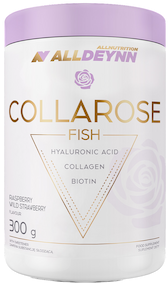
- Collagen content: 5000 mg hydrolysate fish collagen VERISOL F® .
- Additional active ingredients: vitamin C, hyaluronic acid, biotin
- Form: powder to dissolve in water .
- Dose: one scoop (6 g) of powder daily .
- Sufficient for: 50 days .
Product description
Atlantic cod collagen VERISOL F® contained in the formula are easily absorbed collagen peptides of fish origin. Regular supplementation can firm your skinóhand and slow down the ageing process. Your nails will become stronger and stop breaking. The addition of biotin will improve the condition of your hairów. The collagen portion is high enough to also have a good effect on your joints, muscles and bones.
Pros and cons
Atlantic cod collagen VERISOL F® contained in the formula are easily absorbed collagen peptides of fish origin. Regular supplementation can firm your skinóhand and slow down the ageing process. Your nails will become stronger and stop breaking. The addition of biotin will improve the condition of your hairów. The collagen portion is high enough to also have a good effect on your joints, muscles and bones.
Additional information
Atlantic cod collagen VERISOL F® contained in the formula are easily absorbed collagen peptides of fish origin. Regular supplementation can firm your skinóhand and slow down the ageing process. Your nails will become stronger and stop breaking. The addition of biotin will improve the condition of your hairów. The collagen portion is high enough to also have a good effect on your joints, muscles and bones.
Expert and user opinion
Atlantic cod collagen VERISOL F® contained in the formula are easily absorbed collagen peptides of fish origin. Regular supplementation can firm your skinóhand and slow down the ageing process. Your nails will become stronger and stop breaking. The addition of biotin will improve the condition of your hairów. The collagen portion is high enough to also have a good effect on your joints, muscles and bones.
DuoLife Collagen fish collagen 2500 mg
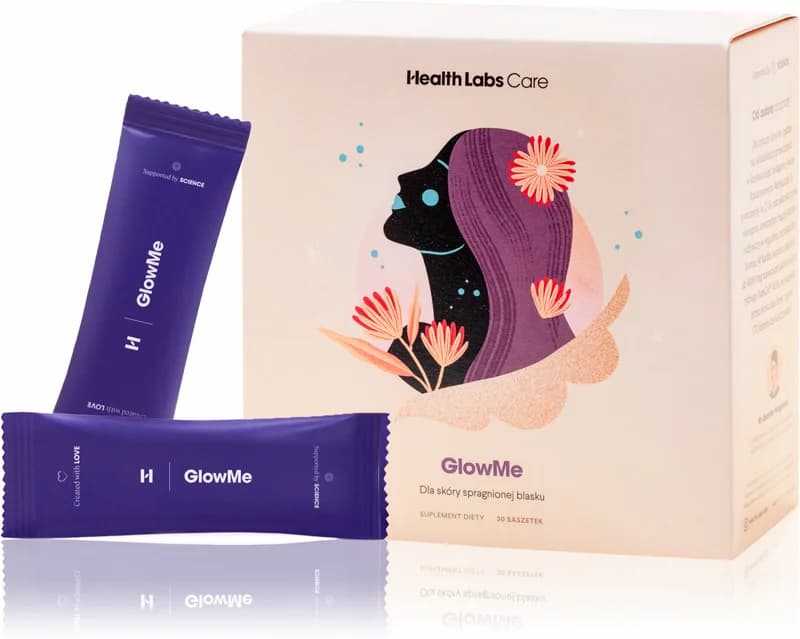
- Collagen content: 2500 mg collagen
- Additional active ingredients: vitamin C, silicon, glucosamine, hyaluronic acid, nettle and bamboo extracts
- Form: liquid to drink .
- Dose:25 ml .
- Sufficient for: 30 days .
Product description
100% natural collagen liquid without unnecessary ingredientsós. The composition of ingredientsós improves the appearance and condition of skinóry, hairów, nails. DuoLife is a good choiceór if you notice the first signs of skinóry ageing or want to stop this process. A tasty liquid, convenient to use.
Pros and cons
100% natural collagen liquid without unnecessary ingredientsós. The composition of ingredientsós improves the appearance and condition of skinóry, hairów, nails. DuoLife is a good choiceór if you notice the first signs of skinóry ageing or want to stop this process. A tasty liquid, convenient to use.
Additional information
100% natural collagen liquid without unnecessary ingredientsós. The composition of ingredientsós improves the appearance and condition of skinóry, hairów, nails. DuoLife is a good choiceór if you notice the first signs of skinóry ageing or want to stop this process. A tasty liquid, convenient to use.
User review
100% natural collagen liquid without unnecessary ingredientsós. The composition of ingredientsós improves the appearance and condition of skinóry, hairów, nails. DuoLife is a good choiceór if you notice the first signs of skinóry ageing or want to stop this process. A tasty liquid, convenient to use.
Pharmovit liquid collagen 10000 mg
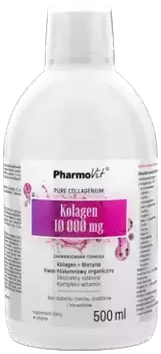
- Collagen content: 10000 mg hydrolysed bovine collagen types I and III .
- Additional active ingredients: hyaluronic acid, natural plant extracts, vitamin C, B vitamins, zinc, vitamin D
- Form: vials .
- Dose: 25 ml .
- Sufficient for: 20 days .
Product description
A solid daily dose of collagen for jointómuscle and bone health and beauty. The duo of collagen and vitamin C has a positive effect on each other, so that „the protein of youth” is better absorbed and more efficiently produced in the body.
Pros and cons
A solid daily dose of collagen for jointómuscle and bone health and beauty. The duo of collagen and vitamin C has a positive effect on each other, so that „the protein of youth” is better absorbed and more efficiently produced in the body.
Additional information
A solid daily dose of collagen for jointómuscle and bone health and beauty. The duo of collagen and vitamin C has a positive effect on each other, so that „the protein of youth” is better absorbed and more efficiently produced in the body.
KFD Premium Collagen+
Product description
High dose of collagen and a real bomb of vitamins C and D and organic sulphur. With this preparation the effects will come immediately. You will improve the firmness of your skin and reduce wrinkles. Your hair and nails will be strong and shiny.
A generous dose of collagen will improve the mobility of your jointsós, benefit your bone system and muscles. Do you do sports and need a product thatós able to keep up with your needs? This product will do the trick.
Pros and cons
High dose of collagen and a real bomb of vitamins C and D and organic sulphur. With this preparation the effects will come immediately. You will improve the firmness of your skin and reduce wrinkles. Your hair and nails will be strong and shiny.
A generous dose of collagen will improve the mobility of your jointsós, benefit your bone system and muscles. Do you do sports and need a product thatós able to keep up with your needs? This product will do the trick.
Additional information
High dose of collagen and a real bomb of vitamins C and D and organic sulphur. With this preparation the effects will come immediately. You will improve the firmness of your skin and reduce wrinkles. Your hair and nails will be strong and shiny.
A generous dose of collagen will improve the mobility of your jointsós, benefit your bone system and muscles. Do you do sports and need a product thatós able to keep up with your needs? This product will do the trick.
Expert opinion
High dose of collagen and a real bomb of vitamins C and D and organic sulphur. With this preparation the effects will come immediately. You will improve the firmness of your skin and reduce wrinkles. Your hair and nails will be strong and shiny.
A generous dose of collagen will improve the mobility of your jointsós, benefit your bone system and muscles. Do you do sports and need a product thatós able to keep up with your needs? This product will do the trick.
Product description
The dietary supplement from Remé contains beef collagen in a patented formula and vitamin C, whichóra aids its absorption. The formula comes in three flavours: neutral, orange-maracuja and strawberry-pomegranate. The formula can effectively support and improve the condition of the skinóry, hairóry and nails.
Pros and cons
The dietary supplement from Remé contains beef collagen in a patented formula and vitamin C, whichóra aids its absorption. The formula comes in three flavours: neutral, orange-maracuja and strawberry-pomegranate. The formula can effectively support and improve the condition of the skinóry, hairóry and nails.
Additional information
The dietary supplement from Remé contains beef collagen in a patented formula and vitamin C, whichóra aids its absorption. The formula comes in three flavours: neutral, orange-maracuja and strawberry-pomegranate. The formula can effectively support and improve the condition of the skinóry, hairóry and nails.
The dietary supplement from Remé contains beef collagen in a patented formula and vitamin C, whichóra aids its absorption. The formula comes in three flavours: neutral, orange-maracuja and strawberry-pomegranate. The formula can effectively support and improve the condition of the skinóry, hairóry and nails.
{ product:1eiyihgASLfslgpBv80Tk1 }}
{ product:3A6Dp6540L63Y3msHqwQCz }}
See also:
.
- Drinking collagen
- Collagen in sachets
- Collagen powder
- Liquid collagen
- Collagen in tablets
- Collagen hydrolysate
- Collagen peptides
- Lyophilised collagen
- Collagen medicine
- Beef collagen
- Collagen in capsules
- Collagen type 1, type 2 and type 3
How much collagen is in the body after the age of 40?
.
Degradation of collagen in the human body begins at around 25 years of age. In contrast, the average, annual loss is about 1.5 per cent. Therefore, we can assume that people who are just over 40 have about 77 per cent collagen in their body. But people who are closer to 50 have only 62 per cent of the youth proteinand.
Don't forget that the exact level of collagen in the body also depends on other factors. Collagen in the body is also destroyed by drinking alcohol, smoking or prolonged exposure to sunlight. Therefore, if you have an unhealthy lifestyle, you are most likely lacking collagen.
Symptoms of collagen deficiency after the age of 40
.
Collagen deficiency can lead to a number of symptoms that affect various aspects of health.
Symptoms of collagen deficiency can include:
- Decreased skin elasticity. Collagen content affects skin elasticity, and collagen deficiency leads to loss of firmness and signs of ageing, such as wrinkles and sagging skinand. .
- Weaker hair and nails. Collagen plays an important role in the development of hair and nails, and a deficiency can cause brittleness, weakness and slower growthand. .
- Joint pain. Collagen supports the maintenance of healthy joint function, so a deficiency can lead to stiffness, pain and the progression of joint diseases such as osteoporosisand. .
- Decreased muscle mass. Collagen is an important muscle builder, so a lack of collagen can lead to muscle weakness and slower recovery processes after exerciseand. .
- Oral health problems. Collagen deficiency can affect the health of teeth and gums, leading to periodontal disease, bleeding gums, or periodontitisand. .
- Problems with the skeletal system. Collagen affects bone strength, and a deficiency can lead to weakened bones, increasing the risk of fractures and osteoporosis . .
Hydrolysed and freeze-dried collagen - which to choose for second youth?
.
The two most popular types of collagen available on the market are hydrolysed and freeze-dried collagen. The table below will help you choose the better option.
. .
Liophilisation is the freezing and evaporation of water to produce a dry collagen powder.
|
Hydrolysed collagenand |
||||
|
Production process |
Hydrolysis is the separation of collagen molecules into smaller peptides using enzymes or acids. This allows the supplement to be better absorbed and provide greater benefits.
Hydrolysis is the process by which collagen is broken down into smaller peptides. |
Liophilisation is the freezing and evaporation of water to obtain a dry collagen powder. This makes the preparation longer lasting and more stable. |
||
|
Absorption . |
Higher than freeze-dried collagen due to smaller particles and better bioavailability. |
Higher than freeze-dried collagen due to smaller particles and better bioavailability. |
Lower than hydrolyzed, due to the lack of breakdown into smaller molecules. |
Higher than hydrolyzed, due to the lack of breakdown into smaller molecules. |
|
Water solubility . |
Good solubility - dissolves quickly in water and other liquids. |
Higher solubility compared to hydrolysed, requires more time and vigorous mixing. |
Good solubility. |
|
|
Price |
Lower than freeze-dried collagen due to high product availability. |
Slightly more expensive than hydrolysed because it is less common and, in some cases, difficult to find. |
Summary
.
Hydrolysed and freeze-dried collagen differ in their manufacturing process, bioavailability and solubility. Hydrolysed is more bioavailable, soluble and costs slightly less. Choosing the right collagen depends on individual preferences, goals and budget.
Why is marine collagen more beneficial than bovine collagen for people over 40 years of age?
.
Fish collagen (otherwise marine collagen, also known as marine collagen) and bovine collagen are two common types of collagen used in supplements and cosmetic products. Although both have their benefits, fish collagen is often considered superior for several reasons:
- Easier absorption. Fish collagen has a lower molecular weight, making it easier for the body to absorb and utilise. Studies suggest that it can absorb up to 50% better than beef collagenand.
- Safety. Beef collagen is derived from cattle, which can cause allergies in some people. Fish collagen is less allergenic, making it a better choice for people with allergies to bovine proteins. Furthermore, beef collagen supplementation is also associated with a risk of contracting animal-borne diseasesand.
- High content of type I collagen. Fish collagen has a higher content of type I collagen, which is the most common type of collagen in the body (90% of all collagen) .
- Sustainable production. Fish collagen is often sourced from wild caught fish in clean waters . .
- Friendly for pescowegetarians; Fish collagen is the only choice for people who do not eat meat but consume fishand. .
What collagen to choose after 40 years of age?
.
When looking for the right collagen supplement after the age of 40, it is worth considering the following key aspects:
- Quantity of collagen. Scientific research suggests that the most effective supplements should contain between 2.5 and 15 grams of hydrolysed collagen. Smaller amounts may be insufficient and larger amounts may not be necessaryand. .
- Purity of formulation. The best collagen supplements do not contain preservatives or other additives. Remember, it's what's listed on the package that gets into your body.
- Active supporters. Analyse the vitamins and minerals that can support collagen synthesis. Vitamin C is worth looking out for, as it plays an important role in the absorption and production of collagen in the body.
- Laboratory tests. Independent, accredited laboratories should confirm the quality of the supplement's composition.
- Formula formulation. Collagen creams have no real effect on the skin. But the choice between powder, liquid, capsules or tablets depends on your preference.
- Origin of collagen. Some manufacturers use collagen extracted from wild caught fish that live in the wild, rather than in farms. Such supplements are environmentally friendly and ensure the welfare of the animals. .
- Flavour. The pleasant taste will make you eager to use the supplement. And in supplementation, regularity is as important as the quality of the supplement itself. Here you will see the full criteria. .
Does collagen in cream work?
.
Unfortunately, no. Despite manufacturers' promises of regaining skin radiance, the application of collagen to the surface of the skin does not produce the desired results. The reason?
Collagen molecules are too large to penetrate the deeper layers of the epidermis. Although they have a good effect on the hydration and elasticity of the skin, these are only external effects. The softness of the skin that you observe when using a collagen cream is only an illusion. In reality, the skin does not benefit from such cosmeticsand.
Applying collagen externally, such as in the form of a cream, does not affect the skin in the way that manufacturers promise. Using such a product has limited benefits, such as gently smoothing the skin or protecting against moisture loss. However, smoothness is misleading because collagen is too large a molecule to get through the epidermis..
 .
.
Witold Tomaszewskidoctor of medical sciences
.See also:
.
How to take collagen after the age of 40?
.
Like other dietary supplements, collagen should be taken as recommended on the packaging or following the advice of your doctor or pharmacist. Before starting supplementation, be sure to check the correct dosage and potential contraindications, as these can vary from product to product.
Collagen protein overdose is rare and usually does not pose a risk. Nonetheless, it is possible to take too much of other nutrients (such as vitamins or minerals) that may be present in supplements in the company of collagen.
Effects of taking collagen protein are not uncommon.
Effects of collagen use - after how long can they be seen?
.
First results from drinking collagen or taking it in tablet form can be seen after about 8-24 weeks of systematic use. The exact length of time for noticeable effects is related to the individual characteristics of your body.
There is no specific time limit for collagen supplementation - it can be taken continuously.
Contraindications to taking collagen after the age of 40
.
Collagen supplements are safe for most people. It is a protein that occurs naturally in the body and therefore most often does not cause side effects. Despite this, not everyone can take them.
Collagen contraindications after the age of 40 areand:
.
- .
- pregnancy and breastfeeding period, .
- selected skin diseases, .
- allergies to the ingredients of the preparation, .
- gastrointestinal problems, .
- adherence to selected medications, .
- kidney and liver disorders, .
- some autoimmune disorders, .
Side effects with collagen supplementation after the age of 40
.
Side effects with collagen supplementation are very rare. Most often, supplementation with this protein does not cause negative effects. Occasionally, however, you may experience allergic reactions that include itching or skin rashes. Other side effects include stomach problems such as bloating or nauseaand.
In most cases, the side effects subside when the product in question is discontinued.
.
Is there any vegan collagen?
.
There is no vegan collagen. All products that are advertised as vegan collagen are actually supplements that provide you with a collection of amino acids (including lysine) that are part of collagen. These preparations will not provide you with collagen on their own.
Specialists have already taken steps to produce collagen from rice or bamboo, as well as genetically modified youth protein from yeast or bacteria. However, these are preliminary steps that require further confirmationand.

Sprawdź, za co pokochały go tysiące klientek Kolagen Premium 5000 mg, mango-marakuja
Natu.Care Kolagen Premium 5000 mg, mango-marakuja
Natu.Care Kolagen Premium dla zdrowia stawów, skóry, paznokci i włosów. Najlepsza przyswajalność. Optymalna dawka 5 000 lub 10 000 mg. Przebadany przez niezależne laboratorium.
Zobacz więcej
Wybrałam kolagen Natu.Care, ponieważ miał super opinie – a to było dla mnie bardzo ważne! Odkąd go stosuję, moja skóra znacznie się poprawiła i jest nawilżona, a na głowie pojawiły się nowe "baby hair".@Kasia S.
See also:
.
- The most powerful collagen .
- Best absorbed collagen
- Properties of collagen
- Natural collagen
- When to drink collagen
- Collagen contraindications
- How to supplement collagen .
- Collagen type 1, type 2 and type 3
- Fluid collagen
- Vitamin C collagen
- How to rebuild collagen
- What destroys collagen in the body
Summary
.
- At the age of 40, you may experience symptoms of collagen deficiency, such as wrinkles or joint pain.
- Collagen has a positive effect on the condition of the skin, joints, hair and nails. .
- Collagen supplementation can prevent, for example, wrinkles or joint pain. .
- Hydrolysed collagen is a better option than freeze-dried collagen.
- Fish collagen is a better option than freeze-dried collagen.
- Fish collagen can be absorbed up to 50% faster than bovine collagen. .
- Side effects of collagen supplementation are rare and mild. .
FAQ
.What is the optimal daily dose of collagen?
.The appropriate dose of collagen depends on individual needs and supplementation goals. It is generally recommended to take between 2.5 and 15 grams of collagen hydrolysate per day. If additional support is required, it is worth consulting your doctor.
.Does collagen aid weight loss?
.Collagen is not a weight loss supplement, nor does it guarantee automatic weight loss. However, its properties can help to support weight loss through various aspects:
- Improving metabolism and muscle regeneration. Collagen may have a beneficial effect on metabolism and muscle recovery, which is important for healthy weight loss.
- Collagen can help to support weight loss.
- Controlling feelings of hunger. Collagen supplementation can give a feeling of satiety, leading to a reduction in calorie intake, which can help with weight loss.
- Promoting digestive function. Collagen may show positive effects on gastrointestinal function, which is crucial for proper digestion and nutrient absorption.
Which collagen is the healthiest?
.Hydrolysed collagen from fish is considered one of the healthiest and best absorbed types of this protein. It is derived from the scales or skins of fish, which are valuable sources of type 1 collagen, which makes up about 90% of the collagen found in human bodies.
Can collagen affect the effects of drugs?"
.There is no confirmed information on dangerous collagen-drug interactions. Its dietary content and supplementation should not affect the effectiveness of pharmacotherapy. However, for peace of mind and safety, it is advisable to consult your doctor if in doubt.
How to choose the best collagen for your face?
.One excellent option for facial collagen is the product Natu.Care Collagen Premium, which contains 10,000 mg of protein. It features a high dose of active ingredients, proven efficacy in laboratory tests and a taste that doesn't resemble fish.
Is it better to take collagen in the morning or in the evening?
.Collagen can be drunk at any time of the day, as it has no bearing on the effectiveness of supplementation. Regularity of use is key, leading to strong nails, firm skin and shiny hair.
Is collagen found in chicken feet?
.Yes, collagen is found in chicken feet. To take advantage of its properties, you can prepare a decoction using crow's feet. Rinse 10-12 pieces, cook for about 15 minutes, then add vegetables, salt and pepper. Cook everything together for another 3-4 hours, and finally strain the stock.
.
Sources
.See all
.Proksch, E., Schunck, M., Zague, V., Segger, D., Degwert, J., & Oesser, S. (2014). Oral intake of specific bioactive collagen peptides reduces skin wrinkles and increases dermal matrix synthesis. Skin Pharmacology and Physiology, 27(3), 113-119. https://doi.org/10.1159/000355523
Reilly, D. M., & Lozano, J. (2021). Skin collagen through the lifestages: Importance for skin health and beauty. Plastic and Aesthetic Research, 8, 2. https://doi.org/10.20517/2347-9264.2020.153
Kahan, V., Andersen, M. L., Tomimori, J., & Tufik, S. (2010). Can poor sleep affect skin integrity? Medical Hypotheses, 75(6), 535-537. https://doi.org/10.1016/j.mehy.2010.07.018
Fisher, G. J., Quan, T., Purohit, T., Shao, Y., Cho, M. K., He, T., Varani, J., Kang, S., & Voorhees, J. J. (2009). Collagen Fragmentation Promotes Oxidative Stress and Elevates Matrix Metalloproteinase-1 in Fibroblasts in Aged Human Skin. The American Journal of Pathology, 174(1), 101-114. https://doi.org/10.2353/ajpath.2009.080599
agoda MD, M. R., & Gans PhD, E. H. (2012). A Nutritional Supplement Formulated with Peptides, Lipids, Collagen and Hyaluronic Acid Optimizes Key Aspects of Physical Appearance in Nails, Hair and Skin. Journal of Nutrition & Food Sciences, s5. https://doi.org/10.4172/2155-9600.S5-002
Kujala, U. M., Kaprio, J., & Sarno, S. (1994). Osteoarthritis of weight-bearing joints of lower limbs in former elite male athletes. BMJ, 308(6923), 231-234. https://doi.org/10.1136/bmj.308.6923.231
Moskowitz, R. W. (2000). Role of collagen hydrolysate in bone and joint disease. Seminars in Arthritis and Rheumatism, 30(2), 87-99. https://doi.org/10.1053/sarh.2000.9622
Yes, Y. J., Kim, Y. J., Lee, J. G., Yi, Y.-H., Cho, Y. H., Kang, G. H., & Lee, S. Y. (2019). Effect of Oral Ingestion of Low-Molecular Collagen Peptides Derived from Skate (Raja Kenojei) Skin on Body Fat in Overweight Adults: A Randomized, Double-Blind, Placebo-Controlled Trial. Marine Drugs, 17(3), 157. https://doi.org/10.3390/md17030157
Ueno, R., Takaoka, Y., Shimojo, N., Ohno, F., Yamaguchi, T., Matsunaga, K., & Kameda, M. (2020). A case of pediatric anaphylaxis caused by gummy tablets containing fish collagen. Asia Pacific Allergy, 10(4), e35. https://doi.org/10.5415/apallergy.2020.10.e35
Hu, Z., Yang, P., Zhou, C., Li, S., & Hong, P. (2017). Marine Collagen Peptides from the Skin of Nile Tilapia (Oreochromis niloticus): Characterization and Wound Healing Evaluation. Marine Drugs, 15(4), Article 4. https://doi.org/10.3390/md15040102
Collagens of marine origin and their potential applications-PMC. (n.d.). Retrieved 14 April 2023, from https://www.ncbi.nlm.nih.gov/pmc/articles/PMC4278207/
Marine Collagen from Alternative and Sustainable Sources: Extraction, Processing and Applications-PMC. (n.d.). Retrieved 17 April 2023, from https://www.ncbi.nlm.nih.gov/pmc/articles/PMC7230273/
Silva, T. H., Moreira-Silva, J., Marques, A. L. P., Domingues, A., Bayon, Y., & Reis, R. L. (2014). Marine Origin Collagens and Its Potential Applications. Marine Drugs, 12(12), Article 12. https://doi.org/10.3390/md12125881
Jelonek, L. (2023). Collagen. Everything you need to know (B. Turczynski, ed.; 1st ed.). Natu.Care. https://books.google.com/books?vid=9788396887801
..
Editorials
Meet the team


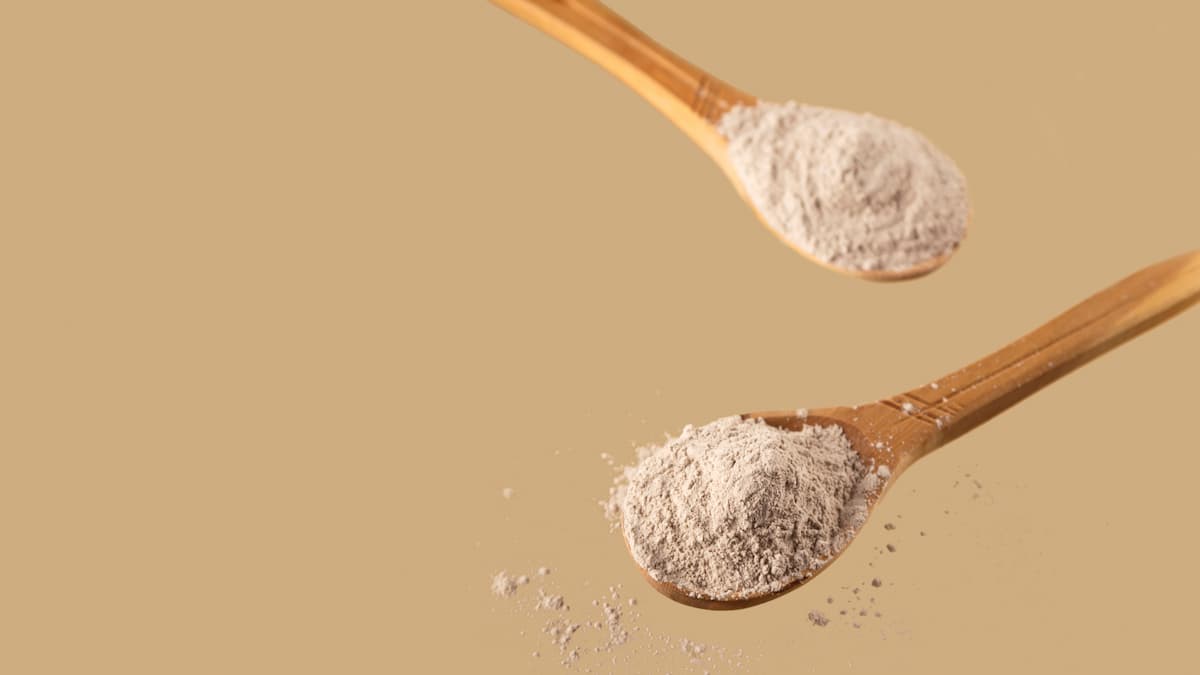
Everything you want to know about COLLinstant collagen.

Collibre collagen is an interesting supplement in shot form.
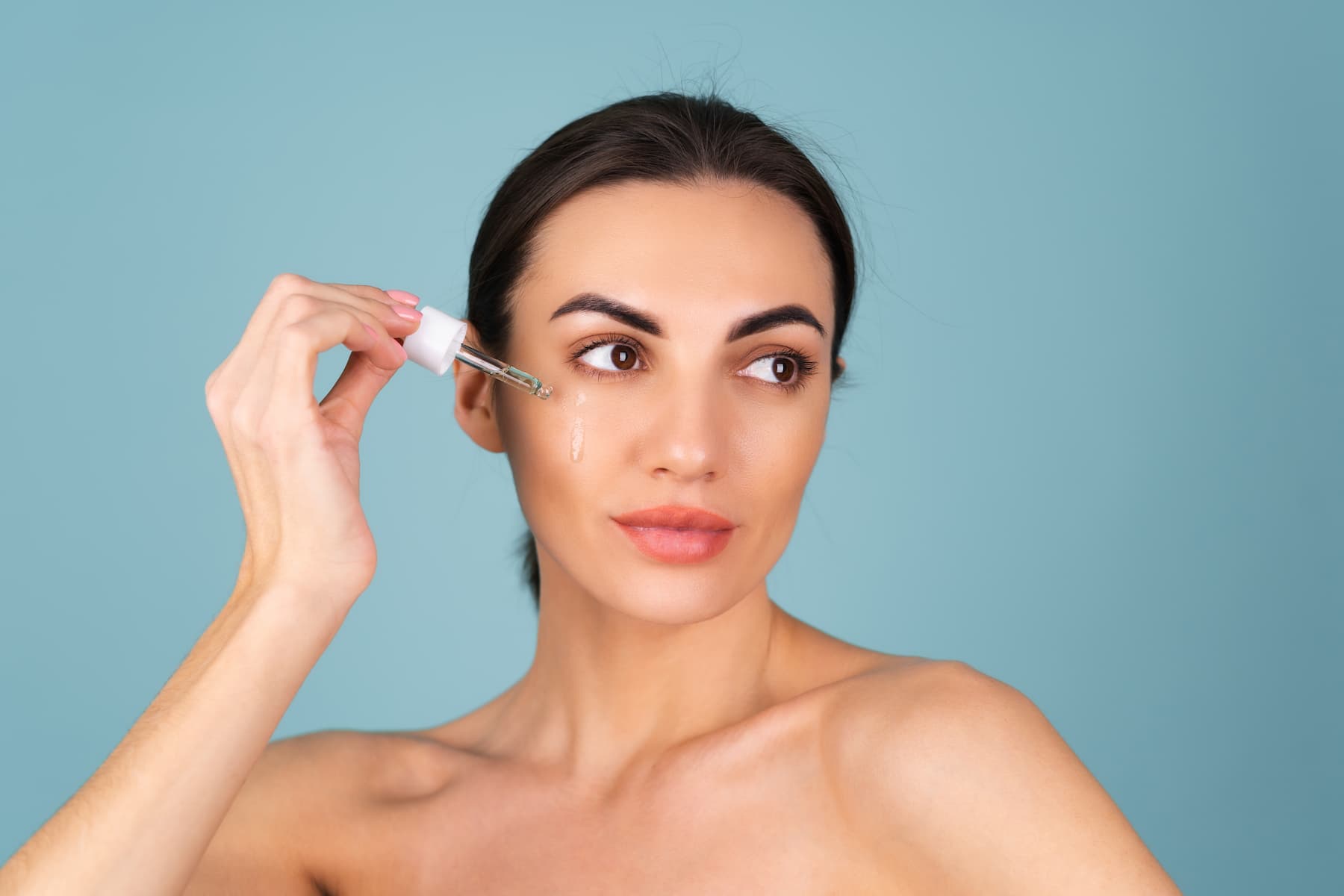
Solgar collagen with hyaluronic acid is a dietary supplement that supports skin and joint health.
